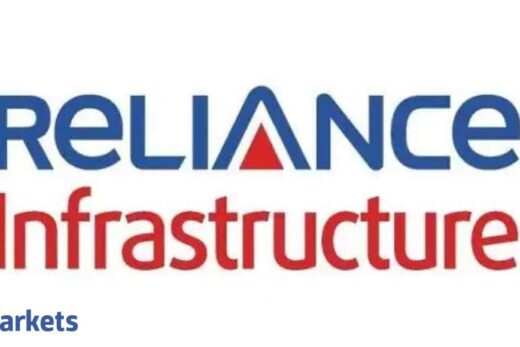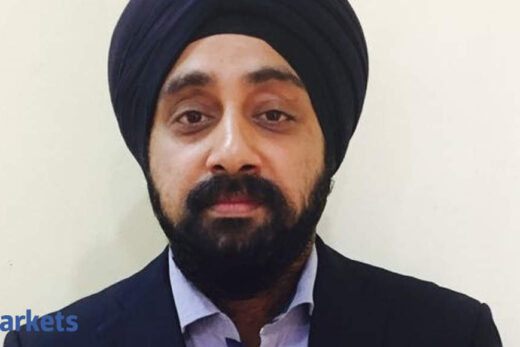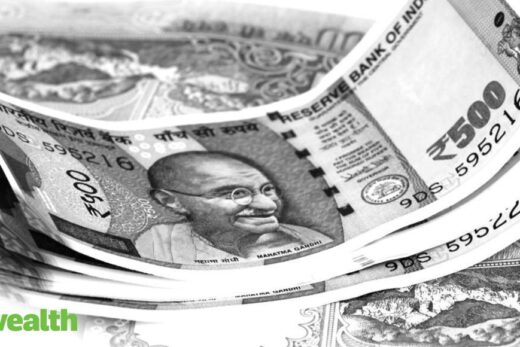BEIJING: Until recently, few people had even heard of the Chinese billionaire with a gruff reputation who built a fortune on China’s seemingly unquenchable demand for his ubiquitous red-capped bottled water.
But reclusive Zhong Shanshan has become Asia’s richest man following the stock listings last year of his Nongfu Spring mineral water and separate pharma company Wantai Biological Pharmacy Enterprise, which has tapped into massive demand for Covid-19 test kits.
Zhong’s net worth has surged to $85 billion and made him the seventh-richest person on the planet, Hurun Report, a China-based compiler of “rich lists”, said last week.
Called a “lone wolf” by Chinese media for his rare public appearances and aversion to interviews, Zhong has achieved one of the fastest accumulations of wealth in history, according to Bloomberg.
He became the first Chinese entrepreneur to enter Hurun’s top-ten global rich list this year, leaping out of nowhere to put him hot on the heels of Facebook’s Mark Zuckerberg and American investor Warren Buffett.
Not bad for someone who dropped out of school at the age of 12 during the political upheaval of China’s 1966-76 Cultural Revolution, and whose later jobs included bricklayer, carpenter and news reporter, according to Chinese media.
Zhong founded Nongfu Spring in 1996 and still owns an 84 percent stake in the company which, according to market research firm Mintel, holds more than a quarter of the bottled water market in China, where many people avoid tap water over health concerns.
In contrast to charismatic Alibaba founder Jack Ma — who Zhong dethroned as China’s richest man — little is known about Nongfu’s billionaire boss aside from his gruff image.
“I don’t have the habit of flattery in my personality,” he once told Chinese media in a rare interview.
“I don’t like to deal with people and have to drink,” he added, referring to a Chinese business culture that encourages excessive wining and dining to cement deals.
His fortunes have risen just as those of Chinese tech companies have slid.
Bill Gates, Ratan Tata, Jack Ma: Business Leaders Who Accepted Their Biggest Mistakes
Faux Pas
Bill Gates recently said that his ‘greatest mistake ever’ — reportedly worth $400 billion — was to not create Android at Microsoft. A look at other regrets of businessmen.
(In pic from left: Bill Gates, Ratan Tata, Jack Ma)
Mark Zuckerberg
In April 2018, Mark Zuckerberg told reporters that he made a ‘huge mistake’ in failing to take a broad enough view about Facebook’s responsibility to the world. This statement was also in the context of the Cambridge Analytica scandal, in which the data mining firm misused data to try and influence elections. In March 2018, Zuckerberg said that “one of the biggest mistakes” of Facebook was not digging deeper into the Cambridge Analytica scandal.
Warren Buffett
The year 2015 marked the 50th anniversary of Warren Buffett and his partners’ decision to take control of Berkshire Hathaway. In his letter to the shareholders, Buffett shared his biggest investment mistakes. He said that buying Berkshire was a “monumentally stupid decision” and that he had only bought the company because it was cheap. Buffett kept investing money in Berkshire’s textile mills, eventually shutting operations in 1985.
Ratan Tata
In July 2015, Ratan Tata, chairman of Tata Trusts and former head of Tata Sons, said his greatest mistake was branding of the Nano car as the cheapest instead of the ‘most affordable’, which was the intention of the company. Branding the car as the cheapest created a negative impact on the market, he said. “Success comes i f one took decisions that one thinks are the right ones,” Tata said.
Elon Musk
In March 2018, Elon Musk participated in a Q&A at South by Southwest. While answering a variety of questions, the Tesla CEO said that the biggest career mistake he made was not being more involved with Tesla in its initial days. From 2004 to 2008, Musk was a lead investor in Tesla, but he was the CEO of SpaceX, a space exploration company. At the event, Musk said, “I think that was probably the biggest mistake of my career. Whenever you think you can have your cake and eat it too, you’re probably wrong.”
Political scrutiny
Ma is now worth a comparatively paltry $55 billion, according to Hurun, after government regulators launched an anti-monopoly investigation into his tech empire, which has pummelled Alibaba’s share price and left a massive IPO by financial arm Ant Group in limbo.
Although Alibaba and Nongfu are headquartered in the humming eastern tech hub of Hangzhou, Zhong is not a regular attendee at the city’s business events, one local entrepreneur told China Economic Weekly.
A former business partner told state media he once attended an industry conference with Zhong, who “went to the stage to give a speech, and offended everyone as soon as he opened his mouth”, without providing details of the offending words.
Alongside Nongfu, which listed last year in Hong Kong, Zhong is also the biggest shareholder in Wantai, which went public in Shanghai.
The group’s rapid Covid-19 test gives results in 75 minutes and, according to its website, has shipped more than 10 million kits.
Wantai is also developing a Covid-19 vaccine nasal spray in conjunction with a prominent university.
Wantai is the biopharma arm of Yangshengtang Group, a medical company Zhong founded three years before Nongfu, which specialises in infectious diseases and says it is the largest production base in Asia for HIV diagnostic reagent.
Hurun says the share listings make Zhong one of only a handful of entrepreneurs in the world today to have founded more than one $10 billion business.
Zhong has a stake, investment or board role in more than 100 companies, according to Chinese business data.
But like other high-profile Chinese industrialists, he has to tread a line between commercial success and official scrutiny.
“The Chinese Communist Party wants Chinese businesses to become big and become international, but it also wants to retain some degree of control over them,” said Yun Jiang, director of China Policy Centre in Canberra.
She says no high-profile business people can entirely hope to “escape political scrutiny” — particularly once they appear on rich list rankings.
Satya Nadella, Sundar Pichai, Indra Nooyi & Aditya Puri: Top 10 Richest Indian Professional…
The Richie Richs
Professional Managers in the list consist of individuals who joined business after it has been founded, helped it grow and these managers were given stock options from which they have created their wealth. “These Indian executives have been the cornerstones in wealth creation of some of the most valuable and respectable companies in the world. Their stories are truly inspirational for young Indian professionals, India being home to the youngest professional work force in the world”, said Anas Rahman Junaid, MD and Chief Researcher, Hurun India.
Thomas Kurian
With a wealth of Rs 11,300 crore, Thomas Kurian is the number one richest professional manager in the IIFL Wealth Hurun India Rich List 2020. An MBA graduate, Kurian began his career at McKinsey & Company in New York. Later, he joined Oracle, where his career spanned for more than two decades. Most of his wealth is attributed to his stake sale in Oracle. He now leads the Cloud division of Google.
Jayshree Ullal
With a wealth of Rs 9,100 crore, President and CEO of Arista Networks, Jayshree Ullal is the second richest professional manager Indian in the IIFL Wealth Hurun India Rich List 2020. In June 2014, Arista Networks filed for IPO under the leadership of Ullal.
Ajaypal Singh Banga
A 2016 Padma Shri awardee, Ajaypal Singh Banga holds the third position in the ranking of richest non-promoter Indians in the list. He is the President and CEO of Mastercard and registered a wealth of Rs 7,200 crore – mainly on the back of his holdings and stake sale in Master Card.
Nikesh Arora
The fourth richest professional manager Indian in the IIFL Wealth Hurun India Rich List 2020 is Nikesh Arora who registered a wealth of Rs 6,500 crore. Arora is currently the CEO and Chairman of Palo Alto Networks. Prior to joining Palo Alto Networks, he served in the leadership positions of SoftBank and Google. Most of his wealth is derived from stake sale in SoftBank.



